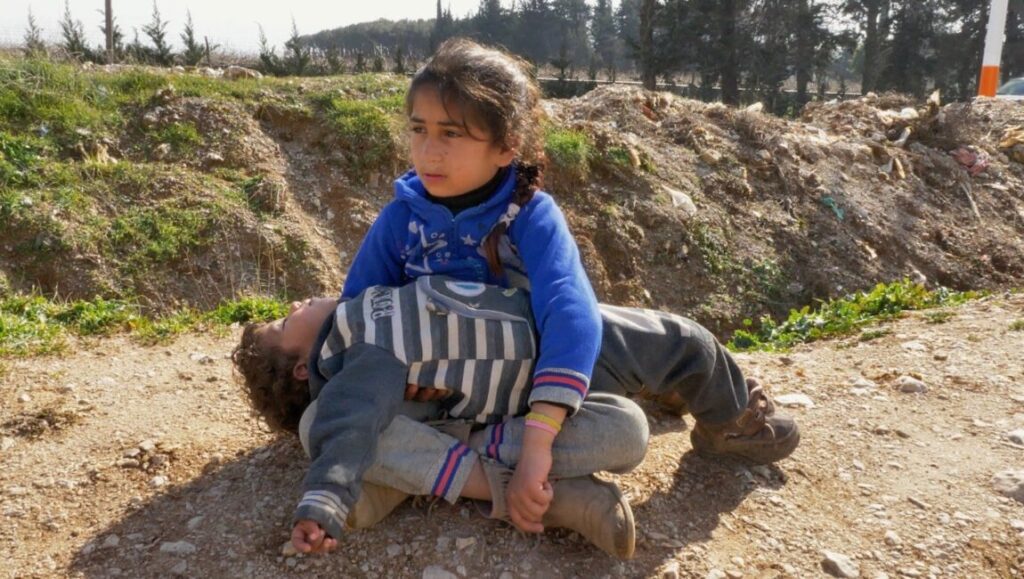Situated in a tent camp within Lebanon’s Beqaa Valley, Bitter Bread follows a number of Syrian refugees, separated from their homes by war and snow-capped mountains, as the travail of their everyday existence is brought to light. Director Abbas Fahdel sews together the experience from his time there, capturing moments that reflect not only the naked honesty of a hapless people, but also the exploitation that befalls them – as it does anyone in such circumstances. Children constitute much of the inhabitants of the camp, featuring extensively to interact with Fahdel’s camera or to be prompted into dialogue with one another, speaking of their past and everything that summates in their present moment. Many have now lived in the tent camp for years, growing up in a limbo space which, quite explicitly, is shown to not belong to them through the restrictions placed on tent extensions and the tax the shawish (the camp administrator) places on wages. Often reiterated is the fact of the refugees’ debt to the shawish and the local store; many inhabitants have no money to pay for their subsistence and thus are forced into promises that will only be paid months afterwards – opening the question of the possibility of their eventual departure.
Fahdel often refers back to the river of open sewage that runs alongside the camp, a kind of master shot around which the action of the camp takes place, obviously a damnable sight when considering its hygienic consequences but also symbolic for the endless current of suffering which runs through these refugees lives (and especially so when, bombarded by rainfall, the camp floods and fills a portion of tents with undoubtedly putrid water). One of the residents speaks of his desire to bring his fiancée to the camp, yet without money to do so they remain separated and able to communicate only via telephone. Indeed, unemployment and meagre wages resign even the children to labour: the boys work throughout the year and the girls stop during the winter months, not altogether too different from a system of indentured servitude. Bitter Bread is a film of forgotten voices belonging to bodies imprisoned all too close to home; in that sense, this is an extremely urgent film, one that cries out for its subjects to be recognised before they meet the fate forced onto them as members of the Global South.
Published as part of New York Film Festival 2019 | Dispatch 3.


Comments are closed.